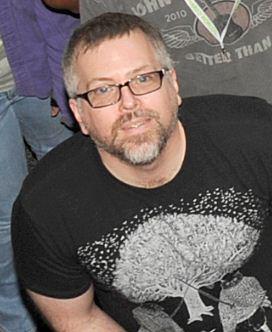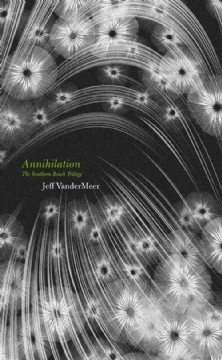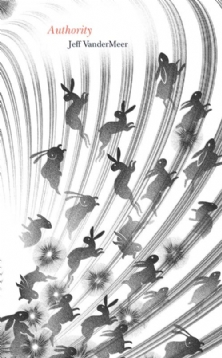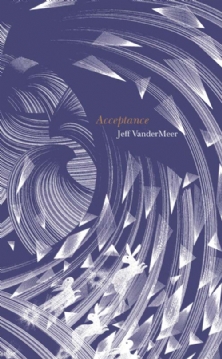My wilderness year
by Jeff VanderMeerHaving three novels published over a space of about eight months is an invigorating, magnificent and mystifying experience. The New York Times name-checks your Annihilation on their front page as an example of “binge reading” and after the glow fades (and the confusion: please don’t skim) you realize it’s also binge publicity, which means binge touring. Maybe it is your annihilation and nobody else’s, even as you’re grateful for the attention. Constant travel can be exhilarating and boring, terrifying and exhausting. So that, over time, touring becomes about the spaces in between, the things you do with your time when you’re not working.
The latest leg of the tour took me to California in April, where I did a bookstore reading, a radio interview, and participated in the Los Angeles Times Festival of Books – an amazing panel with Karen Joy Fowler and Aimee Bender during which we discussed in part attitudes toward animals and the environment, the subject matter of Karen’s latest novel chimp research, and mine focused on a strange pristine wilderness hiding peculiar secrets.
My R&R right after was to plunge right into what we’d been talking about: the wilderness. I drove up the coast to Morro Bay and spent a couple of days at the Blue Sail Inn. Morro Bay, dominated by a giant rock in the harbor, is a great base from which to explore the coast – walk along the beaches, hike the seaside cliffs, and go up into the foothills leading into the mountains.
Ever since living in the Fiji Islands as a child, the sea has been a catalyst for me to recharge, and thus to write, and those shores, along with the ones in North Florida where I live now, are in part why these new novels are successful, if they succeed. Exploring tidal pools, taking in the vagaries of sun and sand and the hundred variations of texture and sensation on rock ledges and shores evoke for me a thousand other days throughout my life, make me happy, and ground me in a way other things don’t. Once, as a child, I even got turned around and disoriented, offshore at night, exploring the shallows near a reef, caught my bearings by way of a luminous starfish, inadvertent compass. These are moments when you realize the world is wider and deeper than you knew, and eventually autobiography comes out in the fiction.
When the sun broke through again and it wasn’t just the reflection, the pool became a kind of living cabinet of curiosities. If he stared long enough into the comforting oblivion of that microcosm, it washed away everything else, even the shadow of his face.
A great California trip the summer before with my wife Ann had saved me, too, because whereas the first novel features the Florida I’m familiar with – the pine forests transitioning to cypress swamp and then salt marshes and the beach – I needed a different landscape for the parts of the other novels in the series.
A different kind of light.
No detail of nature in these novels, I’d resolved, would come from any second-hand knowledge.
So when I went out to hike at Montana de Oro national park the day after I arrived at Morro Bay, I was in the moment but reliving the prior trip and also the journey of my characters in the second and third novels. This created a kind of tripled vision that rather than distracting synched up in a way that made the day even more of a blissful revelation.
I’m much older now than I was even two years ago, with a newly minted bad knee, and so I’m more cautious, take more time to survey my surroundings, gauge my capability to withstand whatever the landscape might bring to me. But my knee held, even halfway up a mountain, and then down the side, a little exhausted, to the sea cliffs: spare, worn, somber against the searing blue and the cold wind. Cormorants and seagulls, ground squirrels and rabbits. Little basking lizards, green and dark brown at the side of the trail. Black-and-red hummingbirds hovering above the bushes, surveiling me.
There’s a great peace in a temporary solitude, when solitude is desired and it’s not signifying loneliness, and also a great pleasure at being pushed to a limit. To be out in the natural places of the world is not as common as it once was for many of us, and even though it felt ephemeral at times, as if I looked out upon a tableau so fragile it could change or disappear in fleeting hours or days, there was, too, in the layers and clash of sheets of rock, the surge of the tide white over their flanks, the sense of a natural history going back millions of years. Some sense of things that, in their permanence, might remain.
The green-and-white stars of barnacles on its back in the hundreds of miniature craters, of tidal pools from time spent motionless in deep water.
I was sad to leave that place, wanted to linger, but was too tired, too sunburned, senses flooded, overrun.
Emerging from the hermit-like seclusion of finishing these novels, I am now expected to be a social animal for months and months—I expect it from myself, and I push for it, hard. But I had to learn how to talk to people again, remember what small talk is, and “broad talk”, as the biologist narrator of Annihilation might say. I’m not complaining because I enjoy most of it, but sometimes the transitions are abrupt and startling.
At the Libertine Bar looking out on Morro Bay an hour after my hike, sitting there in a fatigued daze, the drunk guy next to me kept trying to make conversation. These attempts manifested finally as “Why won’t you talk to me?” And I didn’t mean any offense, but twelve miles of Montana de Oro – up and down small mountains, across creeks, walking through that amazing coastline scenery – was in my mind still, settling into me still.
Once, from this vantage, something vast had rippled through the water beyond the sandbars, a kind of shadow, the grayness so dark and deep it had formed a thick, smooth shape against the blue.
I was thinking about Philip Hoare’s’s great non-fiction book The Sea Inside while a scene playing out in the foreground, out the window, across the glittery late afternoon water, of seals and seagulls fighting over some submerged school of fish, with one large seal taking a seagull along with the fish, and the sudden shock of that, and the lovely ache in my legs from the hiking and the great taste and writerly pedigree of the beer I was drinking, and so all that emerged from me were mumbled nonsense words. After which he turned to the person on his other side and struck up a conversation about bowling.
The next day I’d be driving again, stopping for coffee with a reader in Pismo Beach, and then on to Ventura for a reading at a college, hosted by my friend the novelist Sofia Samatar. The next day I’d go crashing back into the world of my books as published artifacts, as something being read and me as someone giving readings of them. But for a moment, there in the bar by the bay, I was all alone with the novels and the landscape, in a kind of blissful moment of no thought and no worries.
All quotes in italics from the third novel in VanderMeer’s trilogy, Acceptance.
 Jeff VanderMeer is an award-winning novelist and editor. His fiction has been translated into twenty languages and has appeared in the Library of America’s American Fantastic Tales and in multiple year’s-best anthologies. He writes non-fiction for the Washington Post, the New York Times Book Review, the Los Angeles Times and the Guardian, among others. He grew up in the Fiji Islands and now lives in Tallahassee, Florida, with his wife. His ‘Southern Reach’ trilogy, detailing the search for answers to the mysteries of the seeming pristine wilderness known as Area X, is being published throughout 2014 by Fourth Estate. The novels are Annihilation, Authority and Acceptance. Read more.
Jeff VanderMeer is an award-winning novelist and editor. His fiction has been translated into twenty languages and has appeared in the Library of America’s American Fantastic Tales and in multiple year’s-best anthologies. He writes non-fiction for the Washington Post, the New York Times Book Review, the Los Angeles Times and the Guardian, among others. He grew up in the Fiji Islands and now lives in Tallahassee, Florida, with his wife. His ‘Southern Reach’ trilogy, detailing the search for answers to the mysteries of the seeming pristine wilderness known as Area X, is being published throughout 2014 by Fourth Estate. The novels are Annihilation, Authority and Acceptance. Read more.
jeffvandermeer.com




